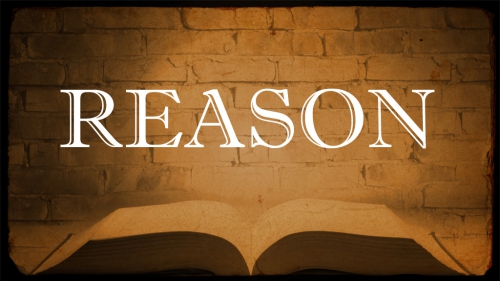MOST RECENT
a:19:{s:8:"theTitle";s:32:"Forgiveness: A Prophetic Example";s:12:"thePermalink";s:64:"https://www.islamicity.org/5682/forgiveness-a-prophetic-example/";s:13:"theAuthorName";s:12:"Fatih Harpci";s:12:"theThumbnail";s:79:"/global/images/photo/IC-Articles/forgive__1024x680.JPG";s:6:"isWhat";s:7:"article";s:7:"theIcon";s:0:"";s:8:"theEmbed";s:0:"";s:11:"theCategory";s:44:"cannot-retrieve-category-see-cell-part-1.php";s:6:"theTag";s:35:"makkah (mecca)|/topics/makkah-mecca";s:7:"theDate";s:11:"Nov 22 2016";s:11:"theDate_ORG";s:37:"June 7, 2012 {wpcf-soft-date engaged}";s:9:"theAuthor";s:29:"Fatih Harpci|/by/fatih-harpci";s:5:"theID";i:5682;s:14:"theReadingTime";s:7:"10 min.";s:10:"theExcerpt";s:469:"The compelling conditions of our time offer human society two paths to choose from. We will either continue past enmities and stereotypes, or we will learn how to live in peaceful coexistence. It is a world of global connectedness, and in order to make peace sustainable, we need to develop new paradigms of peaceful engagement. The example of the Prophet Muhammad, peace be upon him, presents us with many such paradigms that we can adapt to our current circumstances.";s:12:"theTitle_ORG";s:32:"Forgiveness: A Prophetic Example";s:25:"processRelatedFacetsTitle";s:0:"";s:15:"whereItCameFrom";s:88:"_blp_taxonomy_archives.php & zone12 & tax-query & mostrecent on source=fountain-magazine";s:8:"theFacet";s:0:"";}
a:19:{s:8:"theTitle";s:34:"Observation, Reason, and the Quran";s:12:"thePermalink";s:65:"https://www.islamicity.org/8650/observation-reason-and-the-quran/";s:13:"theAuthorName";s:20:"Yuksel A. Aslandogan";s:12:"theThumbnail";s:78:"/global/images/photo/IC-Articles/reason__1024x576.JPG";s:6:"isWhat";s:7:"article";s:7:"theIcon";s:0:"";s:8:"theEmbed";s:0:"";s:11:"theCategory";s:44:"cannot-retrieve-category-see-cell-part-1.php";s:6:"theTag";s:19:"quran|/topics/quran";s:7:"theDate";s:11:"Oct 19 2015";s:11:"theDate_ORG";s:43:"September 25, 2012 {wpcf-soft-date engaged}";s:9:"theAuthor";s:44:"Yuksel A. Aslandogan|/by/yuksel-a-aslandogan";s:5:"theID";i:8650;s:14:"theReadingTime";s:7:"21 min.";s:10:"theExcerpt";s:401:"Humans are endowed with the faculties of reason and intellect, and to ask them to abandon their intellectual faculties in developing their faith and relationship with God would be inconsistent with their God-given autonomy. On the contrary, the Qur'an asks its readers to make observations, relate empathically, think logically, and arrive at conclusions that will pave the way to faith and worship. ";s:12:"theTitle_ORG";s:34:"Observation, Reason, and the Quran";s:25:"processRelatedFacetsTitle";s:0:"";s:15:"whereItCameFrom";s:88:"_blp_taxonomy_archives.php & zone12 & tax-query & mostrecent on source=fountain-magazine";s:8:"theFacet";s:0:"";}
a:19:{s:8:"theTitle";s:36:"Abu Bakr: An Epitome of Truthfulness";s:12:"thePermalink";s:68:"https://www.islamicity.org/7977/abu-bakr-an-epitome-of-truthfulness/";s:13:"theAuthorName";s:14:"Harun Gultekin";s:12:"theThumbnail";s:84:"/global/images/photo/IC-Articles/truthfulness__1024x672.JPG";s:6:"isWhat";s:7:"article";s:7:"theIcon";s:0:"";s:8:"theEmbed";s:0:"";s:11:"theCategory";s:44:"cannot-retrieve-category-see-cell-part-1.php";s:6:"theTag";s:25:"abu bakr|/topics/abu-bakr";s:7:"theDate";s:10:"Feb 4 2014";s:11:"theDate_ORG";s:41:"October 29, 2012 {wpcf-soft-date engaged}";s:9:"theAuthor";s:33:"Harun Gultekin|/by/harun-gultekin";s:5:"theID";i:7977;s:14:"theReadingTime";s:7:"16 min.";s:10:"theExcerpt";s:377:"When God's message was revealed to Muhammad, the first man to believe in him was Abu Bakr. On the day that he stated his belief, he gave his decision quickly and without hesitation showing he had complete trust in Muhammad. The Prophet admired his acceptance of Islam with the words, "Except Abu Bakr, everyone I have invited to Islam has experienced some period of hesitation.";s:12:"theTitle_ORG";s:36:"Abu Bakr: An Epitome of Truthfulness";s:25:"processRelatedFacetsTitle";s:0:"";s:15:"whereItCameFrom";s:88:"_blp_taxonomy_archives.php & zone12 & tax-query & mostrecent on source=fountain-magazine";s:8:"theFacet";s:0:"";}
a:19:{s:8:"theTitle";s:33:"Dhikr (Recitation of God's Names)";s:12:"thePermalink";s:63:"https://www.islamicity.org/8571/dhikr-recitation-of-gods-names/";s:13:"theAuthorName";s:17:"Fountain Magazine";s:12:"theThumbnail";s:84:"/global/images/photo/IC-Articles/tasbihhandbw__1024x531.JPG";s:6:"isWhat";s:7:"article";s:7:"theIcon";s:0:"";s:8:"theEmbed";s:0:"";s:11:"theCategory";s:44:"cannot-retrieve-category-see-cell-part-1.php";s:6:"theTag";s:65:"dhikr (rememberance of allah)|/topics/dhikr-rememberance-of-allah";s:7:"theDate";s:10:"Oct 5 2012";s:11:"theDate_ORG";s:40:"October 4, 2012 {wpcf-soft-date engaged}";s:9:"theAuthor";s:43:"Fountain Magazine|/source/fountain-magazine";s:5:"theID";i:8571;s:14:"theReadingTime";s:7:"11 min.";s:10:"theExcerpt";s:463:"Literally meaning mentioning, remembrance, and recollection, in the terminology of the Sufis dhikr denotes regular recitation of one or some of God's Names at one time. Some spiritual or Sufi orders prefer to recite: Allah (the proper Name of the Divine Being); others recite: La ilaha illa'llah (There is no deity but God [Allah]), the declaration of Divine Unity; and others recite one or a few of the other Names, according to the choice of the order's master.";s:12:"theTitle_ORG";s:33:"Dhikr (Recitation of God's Names)";s:25:"processRelatedFacetsTitle";s:0:"";s:15:"whereItCameFrom";s:88:"_blp_taxonomy_archives.php & zone12 & tax-query & mostrecent on source=fountain-magazine";s:8:"theFacet";s:0:"";}
a:19:{s:8:"theTitle";s:29:"The Ideal Person in the Quran";s:12:"thePermalink";s:62:"https://www.islamicity.org/4800/the-ideal-person-in-the-quran/";s:13:"theAuthorName";s:11:"Halim Calis";s:12:"theThumbnail";s:84:"/global/images/photo/IC-Articles/readingquran__1024x602.JPG";s:6:"isWhat";s:7:"article";s:7:"theIcon";s:0:"";s:8:"theEmbed";s:0:"";s:11:"theCategory";s:44:"cannot-retrieve-category-see-cell-part-1.php";s:6:"theTag";s:53:"iman (faith and belief)|/topics/iman-faith-and-belief";s:7:"theDate";s:11:"Jul 18 2012";s:11:"theDate_ORG";s:38:"July 17, 2012 {wpcf-soft-date engaged}";s:9:"theAuthor";s:27:"Halim Calis|/by/halim-calis";s:5:"theID";i:4800;s:14:"theReadingTime";s:7:"18 min.";s:10:"theExcerpt";s:352:"As with other sacred texts, one of the most important subjects regarding the Qur'an concerns its interpretation or tafsir. As a matter of fact, its language and communicative style require interpretation even for legalistic verses. The fact that the Qur'an is the absolute authority for the Islamic faith increases the importance of its interpretation.";s:12:"theTitle_ORG";s:29:"The Ideal Person in the Quran";s:25:"processRelatedFacetsTitle";s:0:"";s:15:"whereItCameFrom";s:88:"_blp_taxonomy_archives.php & zone12 & tax-query & mostrecent on source=fountain-magazine";s:8:"theFacet";s:0:"";}
a:19:{s:8:"theTitle";s:73:"Faith, Worship, and Social Responsibility: The Ideal Person in the Qur'an";s:12:"thePermalink";s:102:"https://www.islamicity.org/4767/faith-worship-and-social-responsibility-the-ideal-person-in-the-quran/";s:13:"theAuthorName";s:11:"Halim Calis";s:12:"theThumbnail";s:90:"/global/images/photo/IC-Articles/readingquran3women__1024x586.JPG";s:6:"isWhat";s:7:"article";s:7:"theIcon";s:0:"";s:8:"theEmbed";s:0:"";s:11:"theCategory";s:44:"cannot-retrieve-category-see-cell-part-1.php";s:6:"theTag";s:39:"worship (ibadah)|/topics/worship-ibadah";s:7:"theDate";s:11:"Jun 13 2012";s:11:"theDate_ORG";s:38:"June 12, 2012 {wpcf-soft-date engaged}";s:9:"theAuthor";s:27:"Halim Calis|/by/halim-calis";s:5:"theID";i:4767;s:14:"theReadingTime";s:7:"19 min.";s:10:"theExcerpt";s:352:"As with other sacred texts, one of the most important subjects regarding the Qur'an concerns its interpretation or tafsir. As a matter of fact, its language and communicative style require interpretation even for legalistic verses. The fact that the Qur'an is the absolute authority for the Islamic faith increases the importance of its interpretation.";s:12:"theTitle_ORG";s:73:"Faith, Worship, and Social Responsibility: The Ideal Person in the Qur'an";s:25:"processRelatedFacetsTitle";s:0:"";s:15:"whereItCameFrom";s:88:"_blp_taxonomy_archives.php & zone12 & tax-query & mostrecent on source=fountain-magazine";s:8:"theFacet";s:0:"";}








